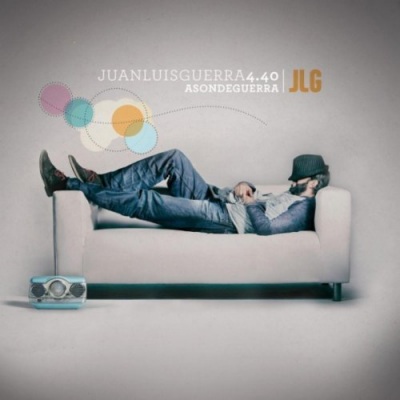
A Son De Guerra
The greatest tropical artist of the past quarter-century, Juan Luis Guerra adds another dazzling album to his catalog with A Son de Guerra, a rhythmically wide-ranging effort that may not run long but is packed with highlights. Since the mid-'90s Guerra has released albums at a leisurely pace, taking four years to release Ni Es Lo Mismo Ni Es Igual (1998), six years for Para Ti (2004), three years for La Llave de Mi Corazón (2007), and another three years for A Son de Guerra. Though the wait between albums is often agonizing for fans, in particular the six-year wait for Para Ti, each album has proved excellent and different from its predecessor. A Son de Guerra is different from its predecessor in that it doesn't aim for crossover success in the way that the Latin Grammy-sweeping La Llave de Mi Corazón did with its bilingual title track and its Black Eyed Peas remix. In some ways rather modest in its aims, this self-produced album is brief at 11 tracks in 37 minutes and flows with such ease from one song to the next that it feels almost effortless. While it's true that there's nothing extravagant here, not even the Juanes collaboration, "La Calle," which is more of a musical showcase than a ready-made hit single, every song is interesting from one standpoint or another. The lead single, "Bachata en Fukuoka," is a lovely bachata whose lyrics are set in Japan of all places and give the otherwise simple song an air of exoticism. A Son de Guerra also includes another similarly styled bachata, "Mi Bendición," and a couple merengues typical of Guerra's past work, "No Aparecen" and "Apaga y Vámonos." Guerra's bread and butter, these bachatas and merengues are spread out a bit on the first half of A Son de Guerra. The remainder of the album, the second half in particular, is remarkably eclectic. Highlights include "La Guagua," a witty guaracha with a political message; "Son al Rey," a Christian song with an infectious Cuban son rhythm; "Arregla los Papeles," an intricate salsa; and "Caribbean Blues," an English-language Latin-style blues sequenced last as a bonus track. Like the aforementioned Juanes collaboration, the remaining songs, "Cayo Arena" and "Lola's Mambo," the latter featuring trumpeter Chris Botti, are essentially musical showcases for Guerra and his red-hot 4.40 band.
